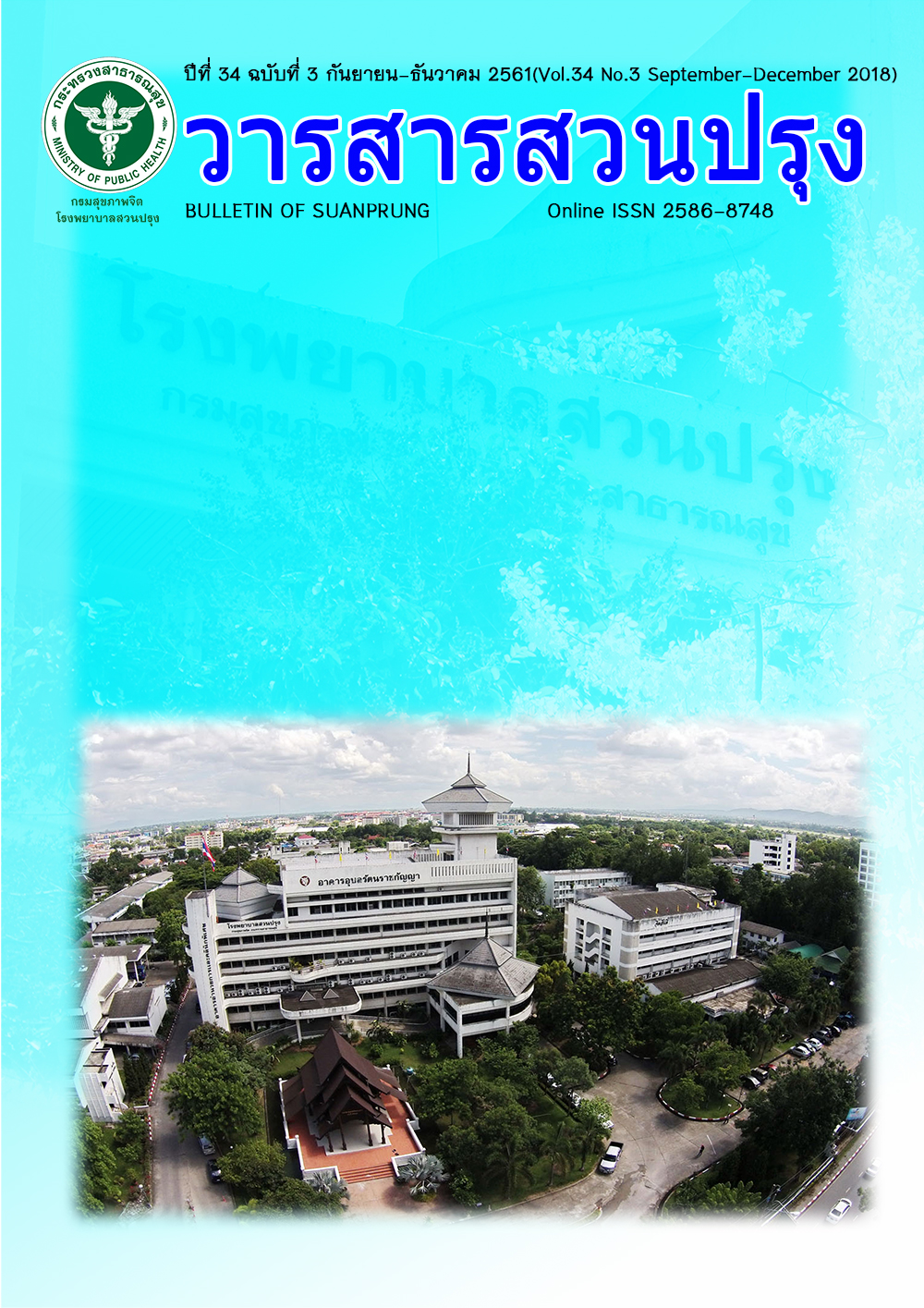The Development and Validation of The Mindset of Ability Scale
Main Article Content
Abstract
Purpose: To develop and examine the psychometric properties of the Mindset of Ability Scale
Method: Participants were Thai government employees aged 18-60 years old. Data were collected during May-August 2016. At Phase 1 (n = 109), The quality of each item was analyzed using corrected item-total correlation (CITC), and the internal consistency of the whole scale was evaluated using Cronbach’s alpha coefficient. At Phase 2 (n = 257), confirmatory factor analysis was used to test the scale structure. Pearson’s correlation coefficients between scores from the Mindset of Ability Scale and other related constructs were calculated to evaluate concurrent validity. At Phase 3 (n = 30), known-group technique and independent sample t-test were used to compare two groups known to differ in their level of growth mindset.
Results: The final scale (Cronbach’s a = .736) consists of s The one-factor measurement model fit adequately with the empirical data—factor loadings ranged from .338 to .777, c2(21, N = 257) = 15.177, CFI = .990, TLI = .983, RMSEA = .032, SRMR = .031. The Mindset of Ability score was positively correlated with personal implicit theory of intelligence (r =.407, p < .001), learning goal (r = .173, p = .006), and problem focused engagement (r = .228, p < .001) . The Mindset of Ability score was able to discriminate between individuals who have growth versus fixed mindset (t(28) = 25.504, p < .001).
Conclusion: The seven-item Mindset of Ability scale has acceptable reliability and validity.
Keywords: Scale development, Mindset of ability, Goal orientation, Coping strategies
Article Details
บทความหลังผ่านการปรับแก้จากกองบรรณาธิการแล้ว เป็นลิขสิทธ์ของวารสารจิตเวชวิทยาสาร โรงพยาบาลสวนปรุง กรมสุขภาพจิต กระทรวงสาธารณสุข ห้ามเผยแพร่เพื่อประโยชน์ทางการค้าโดยไม่ได้รับอนุญาต แต่อนุญาตให้เผยแพร่บทความดังกล่าวเพื่อประโยชน์ทางการศึกษาแก่ประชาชนทั่วไป ทั้งนี้กองบรรณาธิการไม่จำเป็นต้องเห็นด้วยกับบทความหรือข้อคิดเห็นใดๆ ที่ปรากฏในวารสารสวนปรุง

